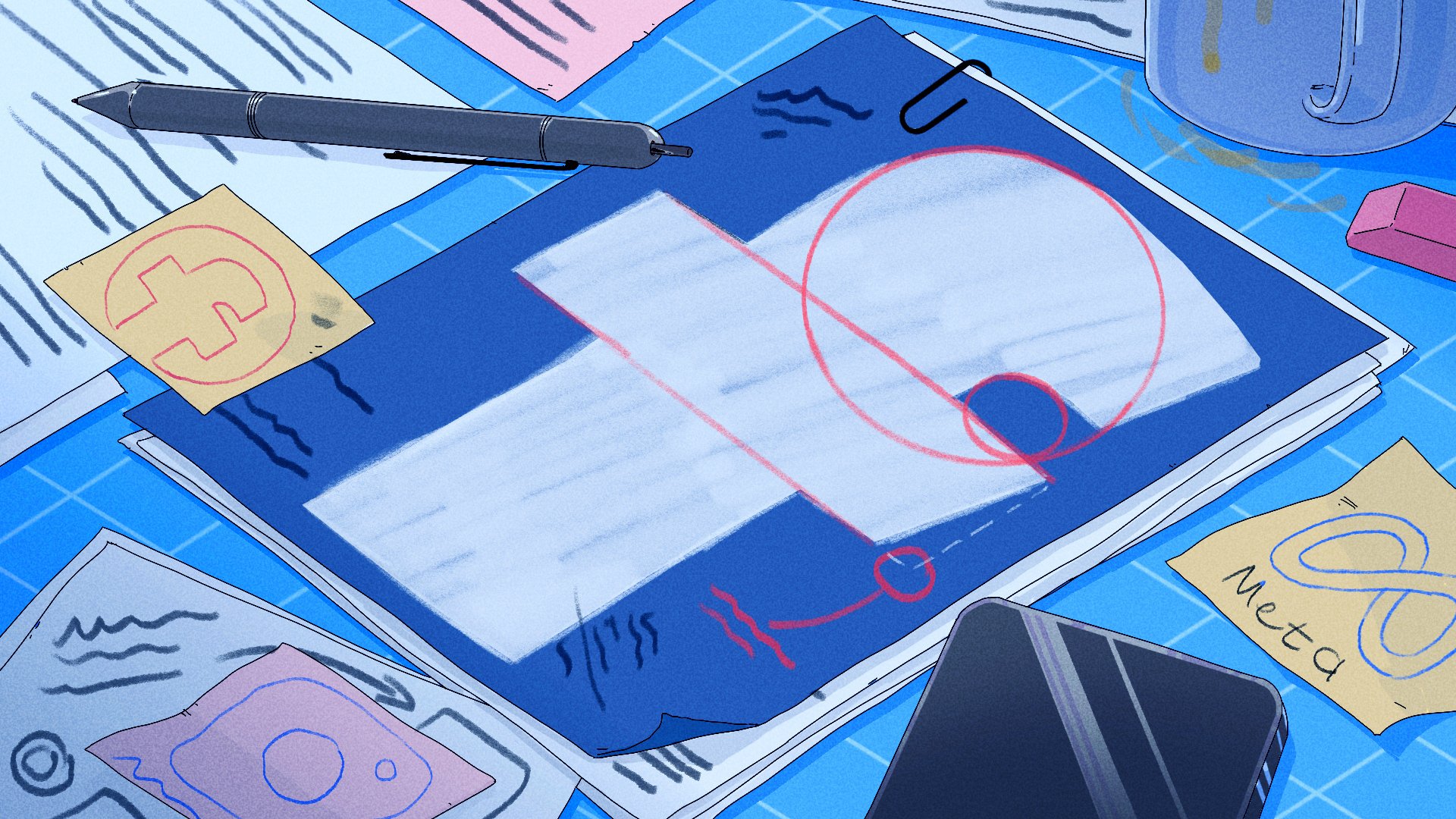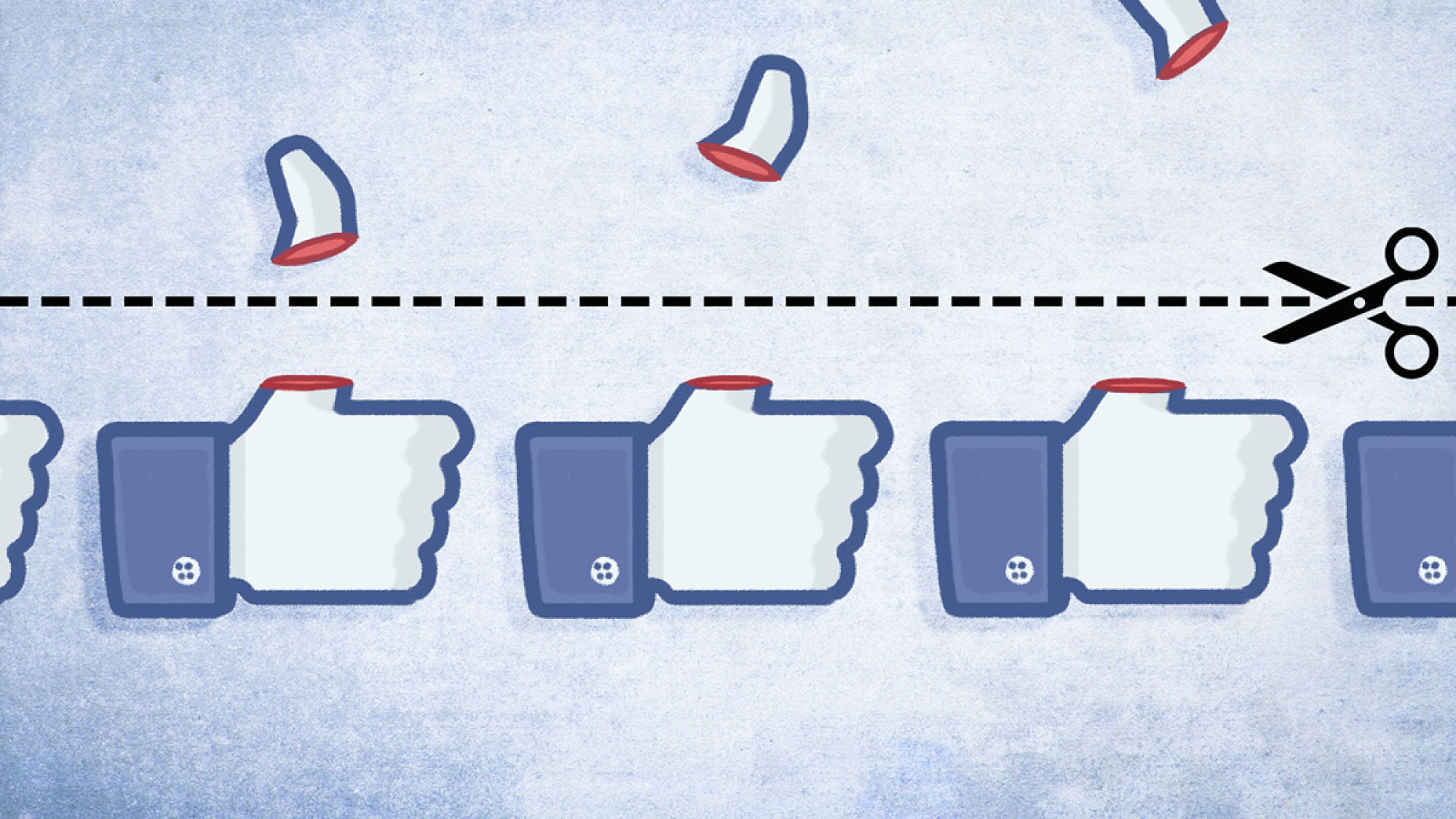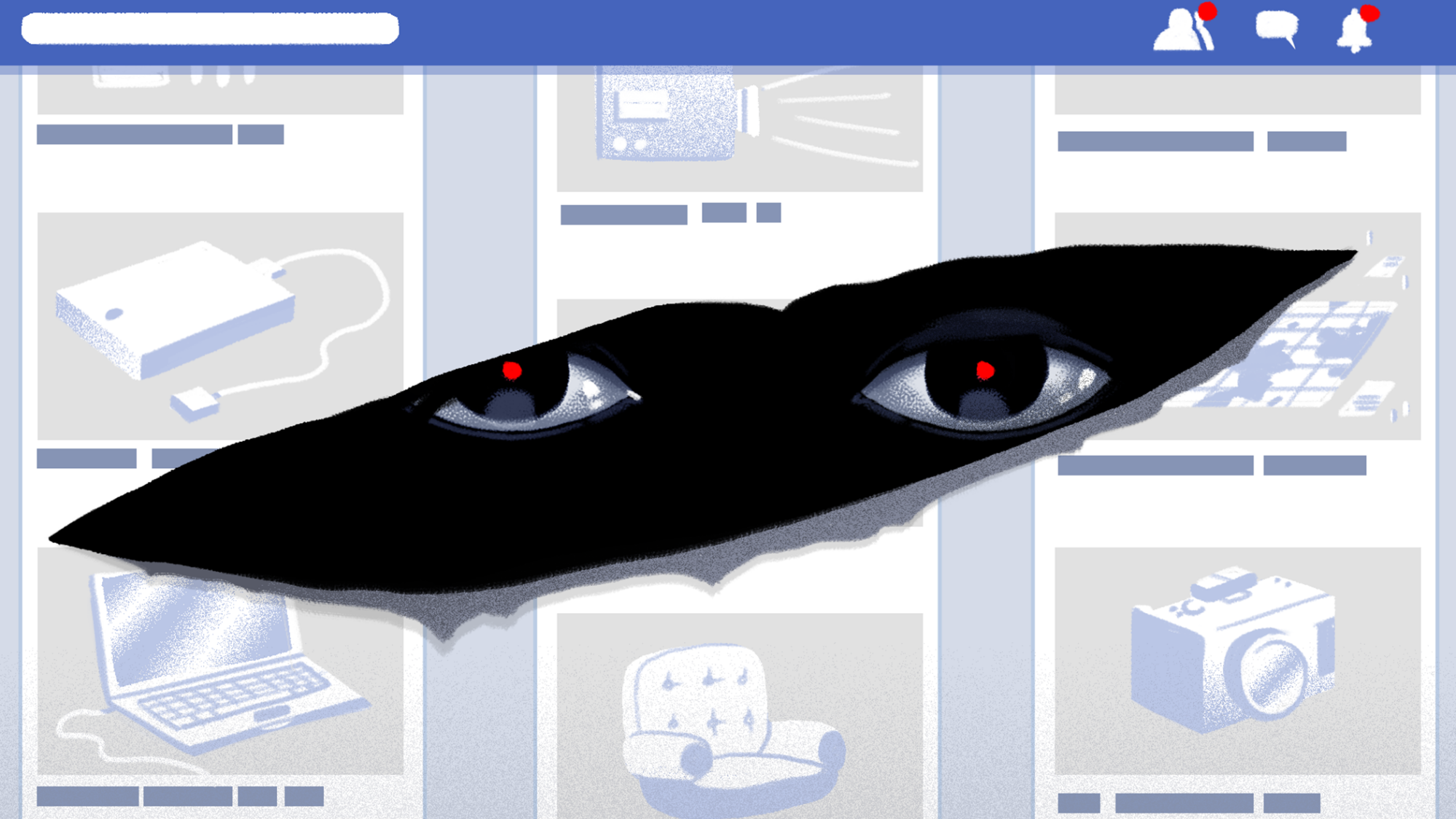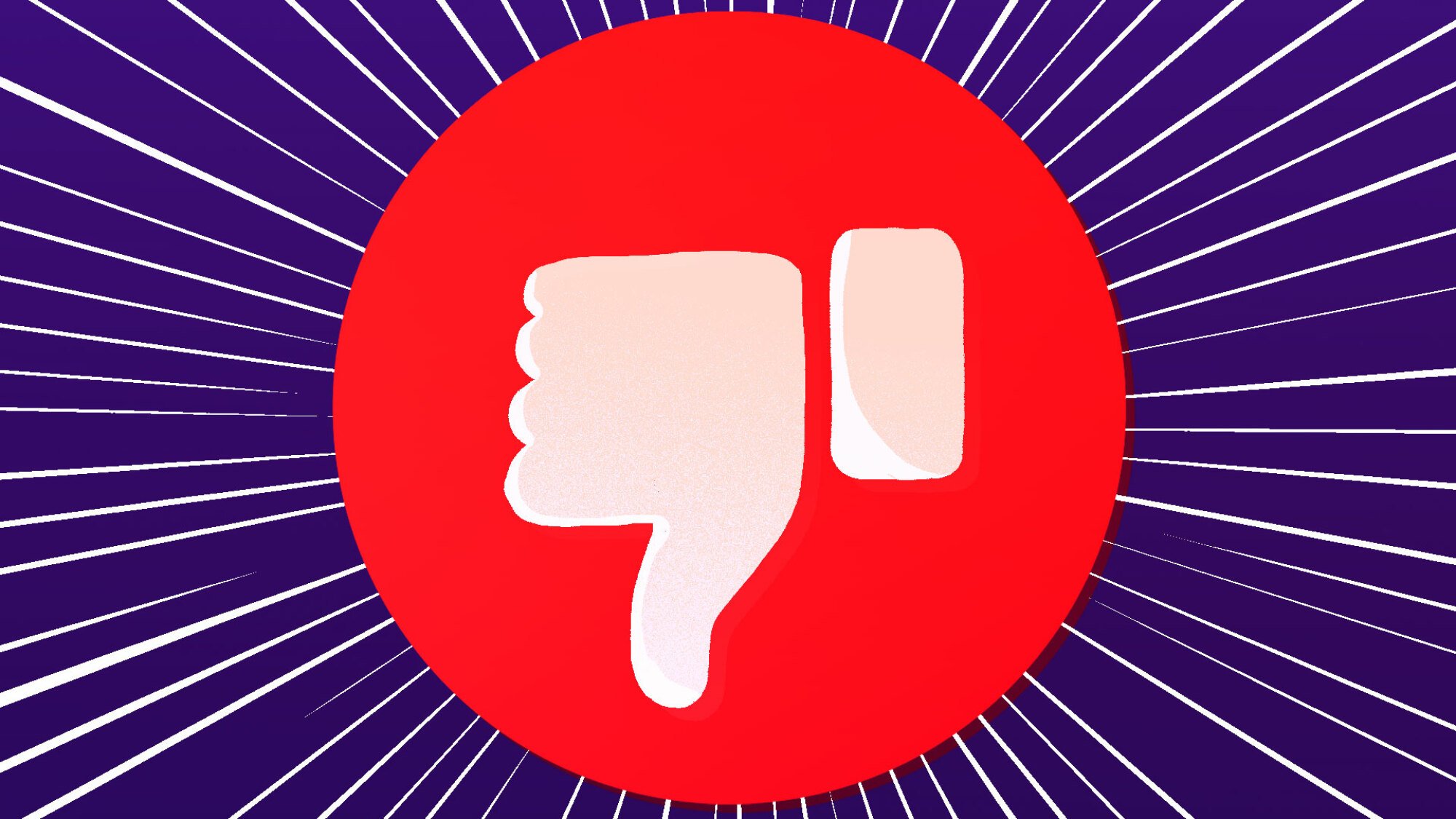How Facebook changed the internet as we know it

You wake up on a Saturday morning and do your best to avoid grabbing your phone. Why? Because Andrew Huberman said so in a podcast you watched a clip of on your algorithmically curated TikTok For You Page. You make a cup of Emma Chamberlain coffee, a product you discovered as you tapped through your Instagram Stories. It is not very good, but you drink it anyway.
When you finally do check your phone, you have a few messages from group chats and, imperatively, a ton of notifications on Facebook, Instagram, Twitter/X, Snapchat, and LinkedIn: someone wants to follow you; a follower liked your post; and a friend who hasn’t posted in a while uploaded a photo. So you go through the motions of your online life — checking your crush’s page, DMing your favorite celebrity, uploading a photo of yourself at 21, logging your Strava run, and scrolling mindlessly.
How did we get here?
On this day 10 years ago, the way we communicate and share information forever changed. On February 4, 2004, Mark Zuckerberg, alongside Eduardo Saverin, Andrew McCollum, Dustin Moskovitz, and Chris Hughes, created Facebook, the social media platform that has impacted and shaped how we create relationships, present ourselves, maintain social hierarchies, run for office, consume media, and, in its fundamental form, live.
As of 2022, nearly 40 percent of the world’s population has a Facebook account, and with over 2 billion daily active users, the platform is still relevant despite its decline.
However, when Zuckerberg created Facebook, it could do relatively few things. It was initially limited to Harvard students, and then anyone with an .edu email address. It wasn’t until 2006 that Facebook opened to the public, enabling everyone to create a public profile and post statuses that their friends could comment on and interact with. There was no way to make money from the site, and no way to go viral.
It’s not that Facebook was the first social media site. In the mid-1990s, we had GeoCities, Classmates.com, and SixDegrees.com. In 2002, we had Friendster, and in 2003, we had MySpace. We communicated through comment sections in blogs and instant messaging forums. But all of these sites were designed as stagnant places for users to present information similar to a website or to find people they already knew in real life. There was no algorithm, there wasn’t any “content” like we know today. Facebook, in its early days, was similar. And somehow it has endured, and it has had the largest effect on society today, slowly shifting and changing the fabric of our communication and, in some cases, democracy. What was once a place for college kids to commune has become a mass of monetization — and we can thank Facebook for that.
“Facebook really was one of the pioneers in terms of people finding a tool that, for free and instantly, you can send multimedia, not just photos, but videos as well, to anyone at any time,” Matt Navarra, a social media expert, told Mashable. “And help you become famous in a moment, in a viral moment. And that was amazing until we saw all the problems that that caused.”

A search for community
Catherine Connors, an academic and one of the first mommy bloggers, told Mashable that she was “desperate for connection” when she started her blog “Her Bad Mother” in 2009. This was after the creation of Twitter but before the creation of Instagram. Facebook was very much a site used by people but, as Catherine said, Facebook was “all conversational” at the time, without “a lot of promotional content.” But about a year after she launched her blog, she and many other blog writers started posting more promotional content about their blogs because “we realized that this is how we were getting known.”
The content was abundant, but the audience was not abundant.
“It was both exciting from a community-connection perspective but also because I was growing my readership in a way that was just way more difficult before social,” Connors said.
In the beginning, social media helped community building for users.
We used these platforms to “have fun and be ridiculous and post stuff for what you probably understood to be a limited audience,” Aimée Morrison, an associate professor in the Department of English Language and Literature at the University of Waterloo, told Mashable in 2022. This was called the social media of abundance.
“The content was abundant, but the audience was not abundant. You imagined that nobody was interested,” Morrison said. Now, you’re one viral post away from quitting your job and becoming a social media influencer; or one post away from losing your job.
It isn’t that Facebook didn’t have an impact in its early days. On the first day Facebook, then called The Facebook, launched, nearly 1,500 people registered for the site — a significant number, considering its humble dorm room beginnings. At the time, it was really only meant for Harvard students. Facebook members posted their physical location, their professors, and their classes in common, which meant you could find the cute person who sat across from you in calculus class. As The New Yorker wrote in 2006, “Clearly one of the reasons that the site is so popular is that it enables users to forgo the exertion that real relationships entail.”
“It’s a way of maintaining a friendship without having to make any effort whatsoever,” a Harvard graduate from Zuckerberg’s era told The New Yorker in 2006. “And the interface provides all the information you need to do that: birthdays, pictures, message boards, contact info, etc.”
Even before the algorithm and the ads, Facebook was changing how we communicate and how we’re willing to present ourselves.
The discovery of an algorithm
As the site grew beyond Harvard, more people got their accounts and created their profiles, using them in virtually identical ways to the Harvard students. Governments, who were mostly hesitant to get on any social media sites, saw them as a broadcast tool instead of a communication tool. Eventually, the ability to communicate with the larger public via these tools became apparent.

“It did create that space for immediate connection, conversational connection, discursive connection, which is part of why a lot of people gravitated there to the extent that there are still spaces for people to communicate,” Connors said. “There’s still some of that, but it took a hit with the loss of Twitter, and it has been shifted by the rise of video, especially short-form video.”
This shift started with the News Feed, a feature Facebook launched in 2006 that turned the platform into the juggernaut it is today. Ruchi Sanghvi, one of Facebook’s first engineers, who helped build the News Feed, told Vox that it was so disliked after its launch that protesters took to the streets. “It was the first time we got a security guard to stand outside the doors of the Facebook offices,” she said.
Before News Feed, Facebook was like all other social media sites: a platform to flip through your friends’ posts and profiles. But the News Feed gave a centralized stream of all of their friends’ updates. Anything you posted would be visible to all of your friends on Facebook; it created a ceaseless, personalized scroll. Publishers got on the site, and they were all weak to Facebook’s almighty algorithms. Nearly every social media platform would eventually copy this — remember Google+?
“Being the pioneers of the News Feed was significant,” Navarra said. “Originally, it was just the chronological order of whatever came through. And so to make it more engaging and…ranked, that was significant in terms of making it more appealing and keeping you on the platform for longer.
Money, money, money
Now that we were all spending so much time on the platform, Zuckerberg debuted Facebook Ads and Pages for brands in November 2007.
It’s a way of maintaining a friendship without having to make any effort whatsoever
“Facebook Ads represent a completely new way of advertising online,” Zuckerberg told marketing and advertising executives in New York at the time. “For the last hundred years, media has been pushed out to people, but now marketers are going to be a part of the conversation. And they’re going to do this by using the social graph in the same way our users do.”
Facebook was creating a new economy. Google had already begun working on this new paradigm in advertising, but Facebook now made it impossible to be a successful brand without having your own Facebook Page — and amplifying that page with ads.
It kind of sucks here
In 2009, Facebook introduced the “Like” button, which has changed the way we use social media, post, and interact with everyone. Quantified popularity revolutionized the internet and not necessarily for the better.

It’s not all tech platforms’ fault, but they enabled the desires of their most gluttonous users. As soon as it became clear that the platforms had created an entirely new economy — the creator economy — we needed more ways to get our fix. We wanted to watch 50 more Harlem Shake videos and see 200 more strangers planking, for some reason. Tech executives wanted us addicted to their platforms, wanted us to crave it, and wanted it to be a necessary tool in our everyday social existence so advertisers would be able to reach us. As apps expanded to incorporate all of our desires, we turned into Mr. Creosote from Monty Python’s The Meaning of Life, continuing to eat despite knowing the food would only make us ill.
In 2013, about five years after she had created her blog, many blog writers and media sites as a whole were beholden to Facebook’s algorithm. They had started making incomes off of ads and page views, so Facebook encouraging — or not encouraging — people to visit their sites was often make-or-break.
“I feel visceral pain at the memory of getting on a plane from a business meeting on one side of the country, and one of my social media managers calling me to say that our traffic had plummeted because Facebook changed its algorithm,” Connors said. “It threw us all into a crisis. Facebook became a big enough engine to have an impact on media traffic, that you couldn’t just look at it as ‘This is the place where you connect with your aunt or with your neighborhood.’ This is a place where yes, you do that, but also if you have any kind of media business, if you’re a creator or an influencer, especially in women in lifestyle spaces, you need to be on here. You need to be building your following. You need to have groups. You need to use it as a big part, if not a core part, of your media strategy.”
What now?
What was once connecting with old friends we already knew on GeoCities, Classmates.com, SixDegrees.com, Friendster, and MySpace has evolved into an entirely new beast. At this point, Facebook is like an unstoppable monster; an invincible force; an inevitability. This is particularly true in the U.S., where restrictions are few and far between in comparison to the UK.
“The main social media platforms that we have now will continue to be the dominant platforms. It’s extremely hard to launch a social network and have it get traction,” Navarra said. We’ve seen plenty of platforms come and go in the past year, including BeReal and Lemon8. “Only really ByteDance has broken through and it had to spend a lot of money to do it. So it’s unlikely that we’ll ever see another multi-billion user platform that we don’t currently know about.”
We saw something magnificent happen over the past two decades online. We saw the rise of social media and an entirely new economy based on the idea that it would help connect us. Social media gave us connection, then gave us increased risk for depression, anxiety, and self-harm, all while helping the spread of misinformation. Social media platforms are now scrutinized for their potential to cause political instability and ethnic violence.
Even if no other social media platform usurps Facebook, plenty of people think social media as a whole is doomed — and it’s pretty obvious why. We posted a ton, and then a lot less, and now it seems that users are more interested in the intimacy of group chats and 1:1 conversations.
It’s unclear what will come in the next 20 years of social media (metaverse?? lol), but there’s a good chance Facebook will be in on it.
